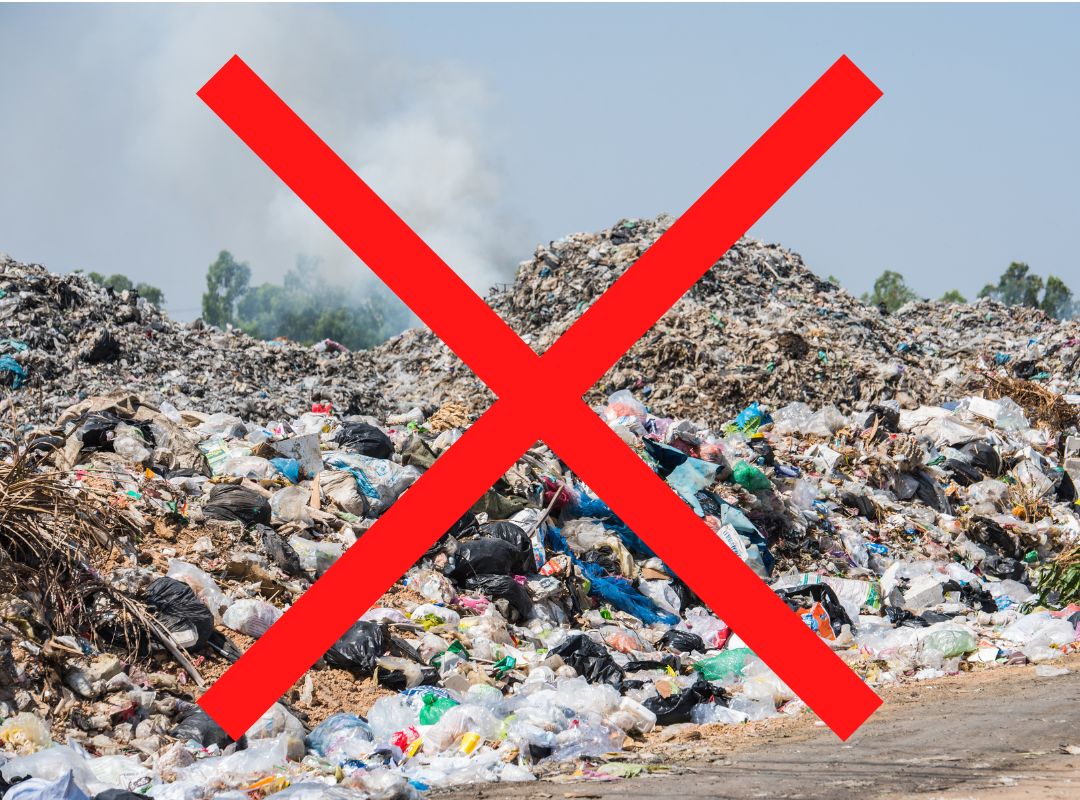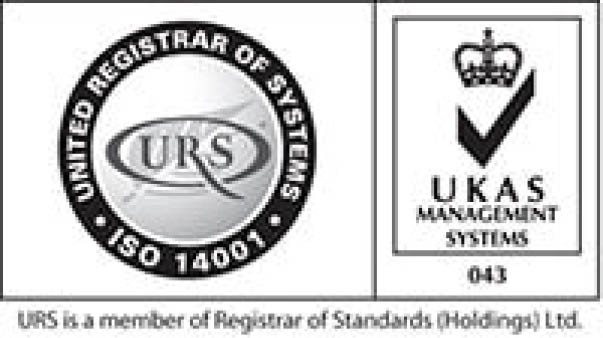The phrase ‘zero to landfill’ is a shortened version of ‘zero waste to landfill’, and encompasses the philosophy of reducing the amount of waste that ends up in landfill.
Although the term ‘zero’ is used, sadly not all types of waste can be processed and might still end up in landfill. But the important point is that companies aim towards reducing their landfill usage significantly, with at least 99% of waste diverted from landfill.
The Waste Hierarchy
The so-called Waste Hierarchy is a model for the various solutions available for waste before finally resorting to landfill.
Prevention is the first part of the model: the single best way to keep waste from going to landfill is to simply not to create it in the first place. It might sound simple, but it is too often forgotten.
Reusing is the next part. Reusing materials makes waste useful and valuable. There has been a massive drive to end the consumption of single-use items in recent years. The government has banned plastic straws, cotton buds, and drink stirrers. The more items we reuse, the more energy we save and less resources end up in landfills.
Recycling is a huge part of the zero to landfill philosophy. A vast amount of materials can be recycled, like glass, cardboard and aluminium. Glass and aluminium can be recycled indefinitely, and it takes less energy and resources to make something from recycled materials. And a soft drink can, if recycled, can be back on the supermarket shelf in as little as two months.
Recovery is another important part of the waste hierarchy model. Through a variety of processes, like anaerobic digestion and incineration, waste can be transformed into energy. Although this uses up the waste and it cannot be used again, the energy gained is a huge bonus.
Disposal is the final part of the model, and is by far the worst one from the planet’s point of view. No new product or benefit is created, water is polluted, methane and other toxic gases are released, wildlife can be harmed, there are problems with dust, odours, noise pollution and infectious diseases.
Reputable Waste Contracting
Everyone has a part to play in the zero to landfill philosophy, even if it is as simple as using a licensed and reputable waste contractor. Wellington Waste, for instance, play a vital role in the circular economy – sharing, leasing, repairing, reusing, refurbishing and recycling existing materials for as long as possible – by taking the waste we collect and sorting it, sending it to incinerators for waste to energy and to recycling centres for reuse.
Due to this process of increasing our waste to energy and plastic recycling, we have reduced sending 4,000-5,000 tonnes of waste to landfill per year by 30% in the last 12 months and plan to reduce this by another 30% over the next 12 months.
This is reinforcing the our drive to increase sustainability and recycling, support the environment and reduce carbon emissions.
For more information, call us on 01823 664628, or email at enquiries@wellingtonwaste.co.uk where a member of our team will be happy to help.

